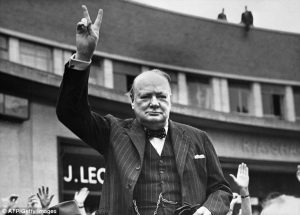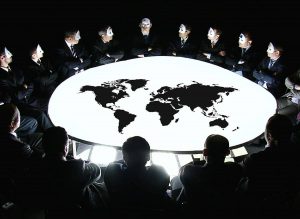Elite’s Power, and Interests in Britain
What public school and ancient universities do for the children of the elite, the House of Lords does for many successful men at a later age. “The House of Lords is more than a mere symbol; it is a concrete proof of the permanence of a social hierarchy in Britain; it is even to some extent a meeting place for people belonging to different branches of the managerial and professional worlds. The title counts, but also the club itself. The upper House provides a platform not only for the more prolix or less busy generals, businessmen, lawyers, administrators, and politicians who have become peers, but even for the others, because it enables them to defend their point of view or their interests if their views are attacked or their interests threatened.”10
Policies come to mature as a result of formal and informal gatherings like conferences, membership of the London clubs, and social rounds of dinners and parties that take place among the former and present politicians, economic and social leaders and civil servants. This social cohesion will naturally develop into kinship. “This is due to the fact that those who interact frequently with one another in the elite circles and other formal context are more likely to choose marriage partners from among families of those with whom they interact than they are to choose from other social circles.”11
As a result of education and public school it could be said that the social structure seems condemned to perpetual immobility. This is basically because “careers depend partly on education and partly on family contacts. Incomes depend on careers, at least in broad terms. Meanwhile, large incomes enable parents to send their children to better schools and therefore to give them better career prospects.”12
This network of dominant status groups which has stemmed from family and education is termed ‘an establishment’. It is a group of people centred around the Church of England, public schools, ancient universities, government, the legal profession, the City and the Guards regiments. As it has been seen “political power in Britain is concentrated in the hands of a dominant social class; a class which has carried into the present the traditional outlook and values of the landed class.”13 W.L. Guttsman, the author of ‘The English Ruling Class’ and ‘British Political Elite’, has argued that: “in so far as the establishment continues to monopolise positions at the higher levels of the political system and to assist their children to reach similar positions they constitute the core of a ‘ruling class’.”14
However, although the fundamental pattern of elite power has not altered as a result of various changes in the economy, such as the growth of institutional share-holding and the increased level of economic concentration, the informal mode of the establishment’s operation has increasingly been supplemented by more formal methods of recruitment and political representation which will be seen.
“In the course of the nineteenth century, England adopted peacefully and without violent shocks almost all the basic civil and political reforms that France paid so heavily to achieve through the great revolution. Undeniably, the great advantage of England lay in the greater energy, the greater practical wisdom, the better political training that her ruling class possessed.”15 So said Gaetano Mosca in 1923.



